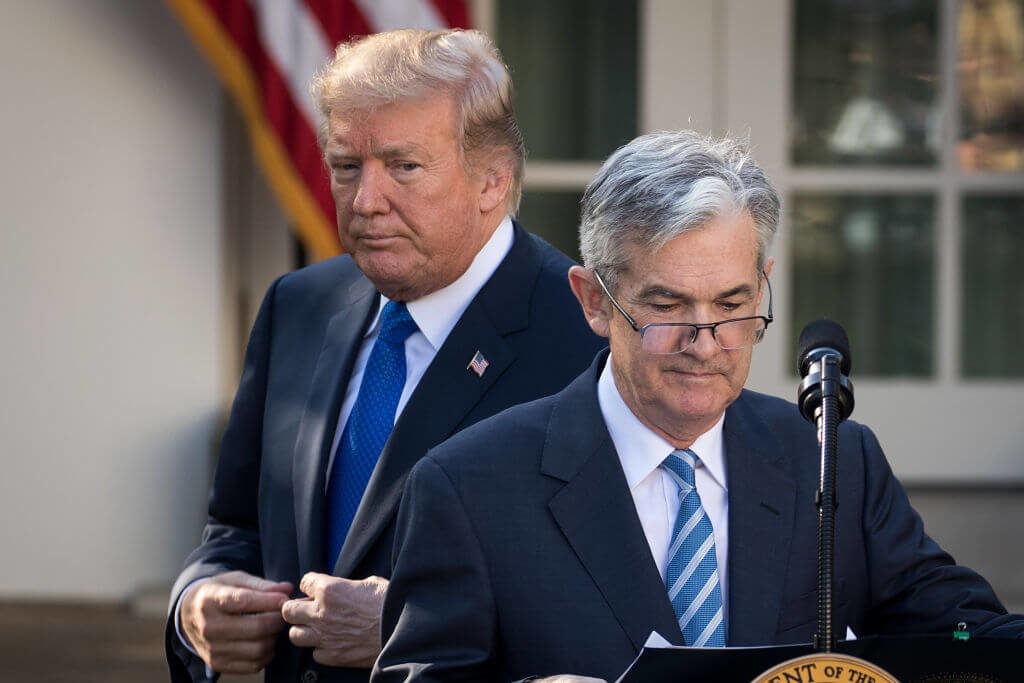One of Donald Trump’s favorite (least favorite?) whipping boys has been Federal Reserve Chair Jerome Powell, mostly because he isn’t giving the president what he wants: substantial interest rate cuts and more quantitative easing — which are recession-era monetary policies.
Those kind of policies aren’t the way to go when the economy is supposedly good because if you cut the already-low interest rates now, when things really turn south there’s nowhere else to go — but negative.
And does anyone really want negative rates? Savers certainly do not.
However, according to a Yahoo Finance report, Trump and Powell could actually soon be on the same page, working in tandem to send stocks soaring.
Trump is reportedly holding up his side of the deal to send stocks rocketing up by coming to a minor agreement with China regarding trade.
The big news that broke late Friday was that after the latest round of trade talks, Trump agreed to postpone the tariffs on $250 billion worth of Chinese imports, which were supposed to rise from 25% to 30% on Oct. 15.
In turn, China agreed to buy between $40 billion and $50 billion in agricultural products from struggling U.S. farmers.
“We have to get a positive surprise on trade, meaning existing, in-place tariffs are reduced not just promising not to do more. That would be a positive surprise,” Sevens Report Research founder Tom Essaye told Yahoo on Friday before the latest news broke.
So we didn’t quite get the big surprise Essaye said we needed, and futures were trading in the negative Monday morning with the Dow down 65 points and the S&P 500 and Nasdaq both down about 0.3% at 9 a.m. EDT.
On the Fed side, with recent news of economic growth slowing to sub-2% gross domestic product, a contraction in the manufacturing sector and slowed consumer spending, Powell is likely to keep cutting rates by at least another .25% this year. And that means higher stock prices.
“We get the rate cut (later this month) because we still have a yield curve inversion and the Fed has to dis-invert the curve,” BNY Mellon Chief strategist Alicia Levine said in another Yahoo Finance interview. “The data continues to be weaker than expected in the U.S. and the manufacturing data has already been in decline but now you are looking at the consumer and services sectors that looked a little weaker in September.”
